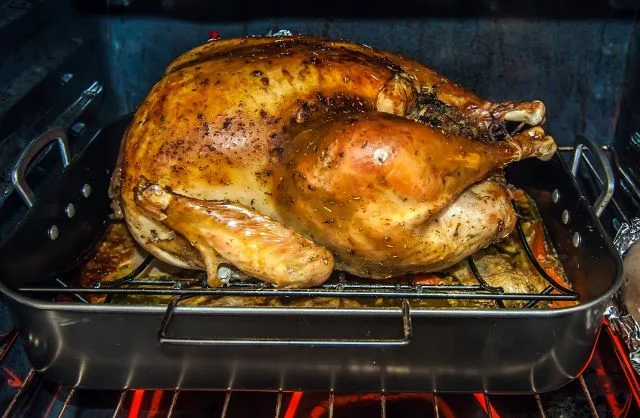
Introduction
Are you looking to replace your old oven? Maybe you’re just considering a gas or electric model. Or maybe you’ve been thinking about replacing your current oven with a convection one, or a built-in microwave oven. No matter the reason, the choice can be complicated. There are many factors to consider before making a decision about which cooking appliance is right for you and your kitchen—and we’re here to help!
Are you in the market for a new oven and can't decide between a gas or electric model? Look no further than Latest Reviews, where we delve deep into the pros and cons of both types of ovens to help you make an informed decision. Our article, "Gas vs Electric Ovens: Which is Right for Your Kitchen," provides a comprehensive comparison between the two options, covering everything from cost and energy efficiency to cooking performance and maintenance. With our detailed analysis, you'll be able to determine which type of oven will best suit your cooking needs and budget. So sit back, relax, and let this blog guide you through the gas vs electric oven debate.
Gas vs electric ovens: the basics
If you're looking to buy a new oven, it's important to consider your options. Gas and electric ovens both have their own benefits and drawbacks.
Gas Ovens: The gas oven typically uses a pilot light in the bottom of its oven cavity, which ignites a small amount of gas when lit by an electrical spark or flame caused by opening the door or turning on your stovetop burners. This produces enough heat to melt fat and cook food at high temperatures without any need for electricity or fuel (although propane tanks are still required).
Electric Ovens: An electric heating element powers an electromagnetic field that causes metal coils in the bottom pan inside an electric range to become hot enough to cook whatever food you place inside them—no need for pilot lights!
Easy temperature control
If you're looking for an easy way to control the temperature of your oven, a gas oven is the way to go. Gas ovens have a thermostat that you can set at any temperature, which is great if you like having things done quickly. Electric ovens only have a few settings and tend to overshoot the temperature you want—so if something takes longer than expected or if it needs more time on one side than another (such as when baking cookies), they're not going to get there until after everything has finished baking.
Fuel source and efficiency
As far as your overall costs go, a gas oven is more efficient than an electric one. This means that you will have to pay more for the electricity used by each appliance, but it also means that your energy bills will be lower in the long run.
The main difference between these two types of stoves comes down to fuel source: gas vs electricity. An electric oven uses electricity to heat up its elements and cook food; whereas with a gas stovetop model (or even an induction stovetop), there are no moving parts—you simply plug it in and wait while your meal cooks itself! Because they don't require any liquid fuels aside from some water or oil heated up beforehand, these types of appliances tend to cost less upfront than those powered by gas or electricity alone because they don't require any special parts either!
Environmental impact
While electric ovens may be more efficient, gas ovens have the potential to be more efficient. The primary reason for this is that gas ovens can burn higher temperatures than electric ones and therefore use less energy.
However, there are many factors that go into determining how much of an environmental impact a kitchen appliance will have. One thing you should consider when deciding whether to choose an electric or gas model is how much electricity your home uses per day (for example, 1kW = 1000W). If you live in a house with poor insulation and don't turn off appliances when they're not in use, then heating water on top of this could cause huge problems down the road!
There’s more than one way to make a delicious meal.
You might be wondering whether you should choose a gas or electric oven. The truth is that both types of ovens have their advantages, and you can use them together in your kitchen. It all depends on what you need from your appliances—and how much time you want to spend cooking!
Gas ovens are generally easier to clean than electric ones, so they're great if there's nothing too fancy about the dishes being prepared. If an electric range won't work out because it takes up too much room, then consider using two smaller non-conventional ranges instead—one on top of another or side by side with one burner each (you'll still be able to use both burners at once). This way everyone gets their own "private" area while still having access to everything else within reach through either doorways or windowsills where light fixtures may sometimes hang above countertops themselves as well; just make sure not too many people congregate around these areas though because accidents could happen easily then!
Conclusion
Choosing between gas and electric ovens can be a difficult decision. Both have their advantages and disadvantages, but it’s important to consider what you want out of your kitchen appliance before making your choice. If you need something simple that works well without much maintenance required then an electric oven is probably the best choice for you. If however, more control over temperature and cleaning are important factors in your decision-making process then perhaps a gas oven would better suit your needs?
More Resources
Bosch Self-Cleaning Oven Review - Top Models and Features
Lamona Oven Review - Brand Guide, Models, Features, Performance & Value
What Color Oven is Best for Me? A Buyer's Guide

